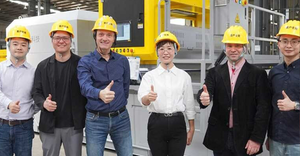A debate has emerged in New York City regarding the safety of commercial haulers. Both sides say they ultimately have the same goal: to improve safety in the waste and recycling industry and to remove the industry from the most dangerous jobs list. But the emphasis on how to get there is divergent. And the discussion on safety ties into another thorny issue: the establishment of commercial zones in the city.
The issue was thrust in the limelight after a union-backed group issued a new report saying poorly maintained trucks present the biggest hazard for the industry. And, ultimately, the group is tying safety to a proposal to establish commercial waste collection zones. Industry groups—including both associations—are pushing a comprehensive approach to safety, which includes promoting best practices for drivers and promoting awareness of the dangers posed by distracted drivers, pedestrians and other external hazards. There is also opposition to the establishment of commercial franchising zones.
“The idea of commercial waste collection zones does not appeal to the waste and recycling industry because the industry is committed to having an open-market competitive system to serve the public,” says Kendall Christiansen, manager of the New York City chapter for the National Waste & Recycling Association (NWRA). “This system would only allow larger companies to compete, which is something the industry has always resisted.”
According to the recent report conducted by the Transform Don’t Trash NYC coalition and Transportation Alternatives, 48 percent of the thousands of waste trucks that are on New York’s roads were deemed unsafe to operate on city streets and were taken out of service. (Transform Don’t Trash NYC is a coalition dedicated to transforming New York City’s commercial trash industry to reduce waste and pollution, foster clean and healthy communities for all New Yorkers and create good jobs.)
The group’s recent report, “Reckless Endangerment: How New York City’s Unsafe Commercial Garbage Trucks Put Us All At Risk,” provides a brief overview of the industry’s current safety issues (most of which are based on federal inspection reports and data from the NYC Department of Sanitation) as well as a conclusion and a few recommendations.
“The Transform Don’t Trash NYC coalition aims to raise awareness about the waste and recycling industry’s critical safety issues,” says Brigid Flaherty, organizing director at ALIGN and Transform Don’t Trash NYC coalition member. “Our ultimate goal is to have a comprehensive strategy for the issues mentioned in the report and to move forward with a waste collection zone legislation.”
One of the biggest takeaways from the report, Flaherty says, is that 96 percent of the safety violations committed in the past two years by 20 of the largest private haulers in New York City were related to vehicle maintenance, while 3 percent were related to driver fitness and 1 percent was related to unsafe driving.
According to the report, during this two-year time period, private haulers were issued with 400 violations, 384 of which were due to maintenance issues like faulty brakes, unsecured cargo, low-tread tires and broken headlights and turn signals. The report also reveals that these private haulers were involved in 35 crashes during this same time period, two of which were deadly but not accredited to maintenance issues.
In the report, the coalition also highlights three recommendations: creation of exclusive commercial waste collection zones, better vehicle design and improvement to crash response.
The coalition says waste zones would achieve greater road safety through reporting, monitoring and enforcement requirements for private haulers that ensure compliance with road safety and labor standards. These zones would also decrease truck traffic by encouraging more efficient routes that require fewer trucks on the road.
In terms of vehicle design, the report recommends things like removing the riding steps on private sanitation fleets and adding legal seats and seat belts to accommodate collection crews.
Lastly, it argues for systematizing the post-crash response. Standards would include internal crash tracking metrics with goals measuring each crash involving a fleet vehicle, timely release of pertinent crash information and data and guidelines for punitive actions taken against the company post-crash, depending on injury severity.
The NWRA has recently stepped up its industry safety commitment by holding a series of Safety Stand Downs, which address and provide solutions for various safety issues in the waste and recycling industry. And last week, more than 100 waste and recycling industry professionals from both the private and public sectors joined the NWRA and the Solid Waste Association of North America (SWANA) to share best practices in New York City as part of a NYC Waste & Recycling Safety Symposium.
At the same time as the symposium, Transform Don’t Trash NYC held a press conference nearby, where members of the coalition, representatives from various unions, councilmembers and sanitation workers met to discuss the coalition’s recent report and their concern for industry safety.
One of the press conference speakers was 24-year-old Carl Orlando, a former worker in the waste and recycling industry. Throughout his career, Orlando worked for seven companies in the industry, and he faced a number of different safety issues at each one of them.
“I was never involved in any type of safety training at the seven companies that I worked for,” says Orlando. “There also weren’t any inspection forms for me to fill out for pre- and post-trip truck inspections.”
Last winter, Orlando was driving across the Metropolitan Avenue Bridge when the brakes in his truck stopped working. He made the decision to crash into a telephone pole to get the truck to stop, risking his safety and the safety of others. Orlando claims that Queens County Carting, his former employer, had failed to winterize the truck, which caused the brake line to freeze.
Orlando is also currently going through a lawsuit with his most recent former employer Liberty Ashes, which he claims wrongfully terminated him over an alleged unpaid overtime dispute.
While the NWRA and SWANA will continue their efforts to educate industry leaders on safety, the coalition plans to move forward with its safety recommendations.
“These industry issues are so deep and systemic,” says Flaherty. “We need to look at all aspects of the industry, from air pollution to recycling to waste collection, to improve safety in the waste and recycling industry.”
About the Author(s)
You May Also Like




